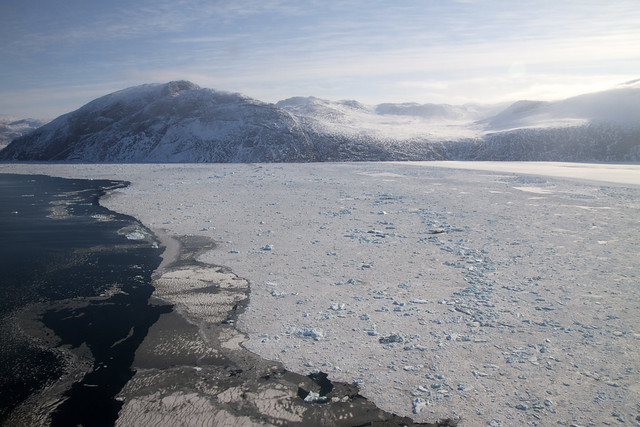 Melting of polar ice sheets has added 11mm to global sea levels over the past two decades, according to the most definitive assessment so far. More than 20 polar research teams have combined forces to produce estimates of the state of the ice in Greenland and Antarctica in a paper in Science.
Melting of polar ice sheets has added 11mm to global sea levels over the past two decades, according to the most definitive assessment so far. More than 20 polar research teams have combined forces to produce estimates of the state of the ice in Greenland and Antarctica in a paper in Science.Friday, November 30, 2012
Sea-level rise from polar ice melt finally quantified
 Melting of polar ice sheets has added 11mm to global sea levels over the past two decades, according to the most definitive assessment so far. More than 20 polar research teams have combined forces to produce estimates of the state of the ice in Greenland and Antarctica in a paper in Science.
Melting of polar ice sheets has added 11mm to global sea levels over the past two decades, according to the most definitive assessment so far. More than 20 polar research teams have combined forces to produce estimates of the state of the ice in Greenland and Antarctica in a paper in Science.
Labels:
News
Spawned in the USA: new fish named after Barack Obama
 He already had the presidential seal. Now comes the presidential fish. Researchers have named a newly discovered species of freshwater fish after Barack Obama, making him only one of four presidents to have newly discovered species of fish named after them for their green credentials.
He already had the presidential seal. Now comes the presidential fish. Researchers have named a newly discovered species of freshwater fish after Barack Obama, making him only one of four presidents to have newly discovered species of fish named after them for their green credentials.
Labels:
News
Thursday, November 29, 2012
DSCC react to disappointing rise in quotas
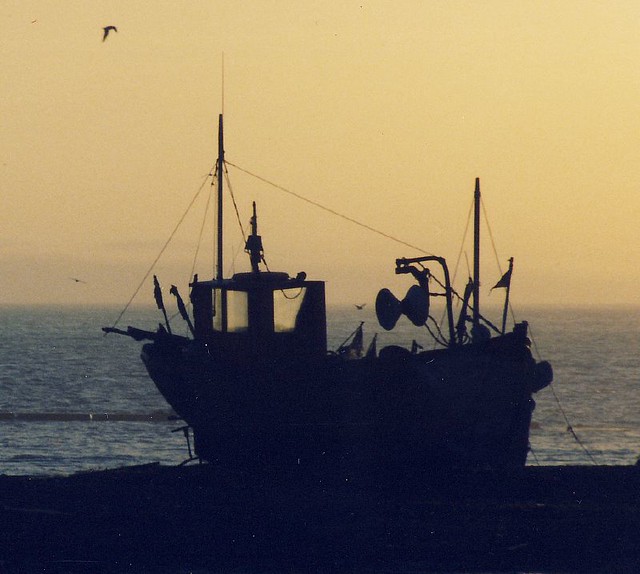 Today the Council of Fisheries Ministers increased quotas for deep-sea species fished by EU fleets in the Northeast Atlantic. We spoke to Matthew Gianni of the DSCC for his reaction to this disappointing outcome.
Today the Council of Fisheries Ministers increased quotas for deep-sea species fished by EU fleets in the Northeast Atlantic. We spoke to Matthew Gianni of the DSCC for his reaction to this disappointing outcome.
Labels:
News
How development organisations can tackle the fisheries challenge
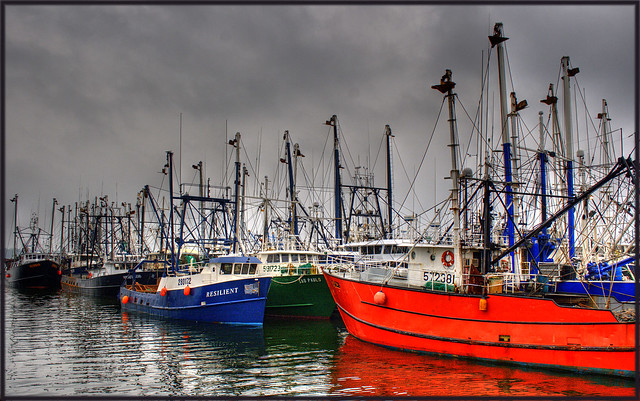 Overfishing is becoming increasingly recognised for the ecological disaster that it is. The capacity of the global aggregate fishing fleet is at least double of what is needed to exploit the oceans sustainably, and fishing methods such as industrial bottom trawling have proved particularly destructive. NGOs and other development actors can play a crucial role in monitoring the way that resources are managed and benefits are shared. They must look at the oceans, seas, lakes and rivers with the same scrutiny that is now applied to the management of farmland, forests and other terrestrial resources.
Overfishing is becoming increasingly recognised for the ecological disaster that it is. The capacity of the global aggregate fishing fleet is at least double of what is needed to exploit the oceans sustainably, and fishing methods such as industrial bottom trawling have proved particularly destructive. NGOs and other development actors can play a crucial role in monitoring the way that resources are managed and benefits are shared. They must look at the oceans, seas, lakes and rivers with the same scrutiny that is now applied to the management of farmland, forests and other terrestrial resources.
Labels:
News
US coastal cities in danger as sea levels rise faster than expected, study warns
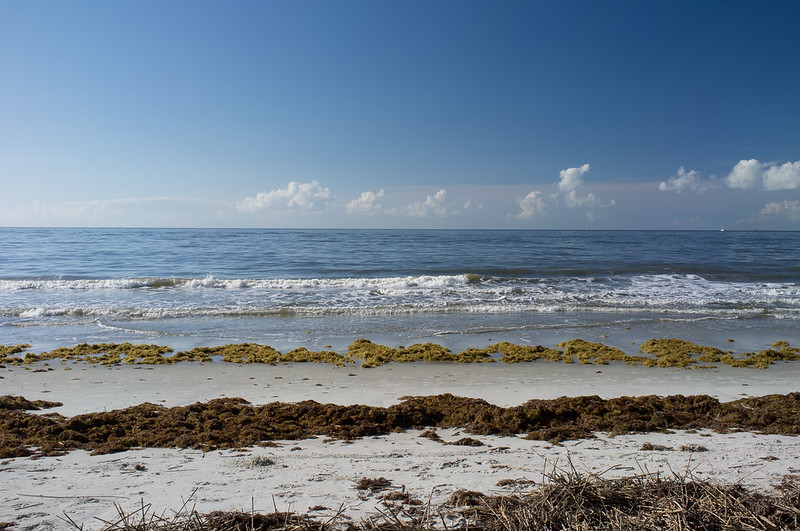 Sea-level rise is occurring much faster than scientists expected – exposing millions more Americans to the destructive floods produced by future Sandy-like storms, new research suggests. Satellite measurements over the last two decades found global sea levels rising 60% faster than the computer projections issued only a few years ago by the United Nations' Intergovernmental Panel on Climate Change.
Sea-level rise is occurring much faster than scientists expected – exposing millions more Americans to the destructive floods produced by future Sandy-like storms, new research suggests. Satellite measurements over the last two decades found global sea levels rising 60% faster than the computer projections issued only a few years ago by the United Nations' Intergovernmental Panel on Climate Change.
Labels:
News
Wednesday, November 28, 2012
Branson backs demands for strict curbs on deep sea fishing
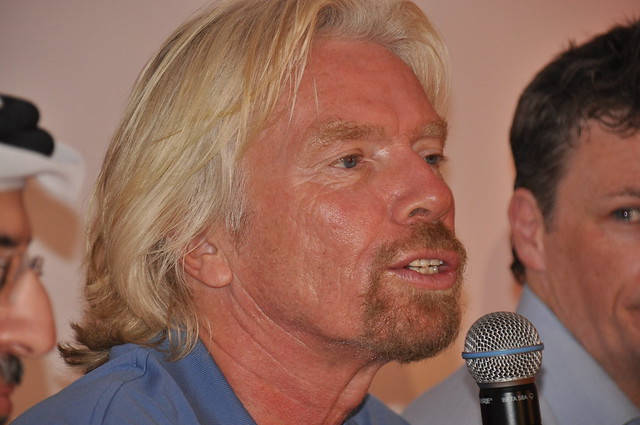 Sir Richard Branson, the adventurer and entrepeneur, has called on the UK to take a leading role in cutting back deep sea fishing. He has written to UK fisheries minister Richard Benyon urging him to put pressure on other EU member states to back proposals to introduce much tighter restrictions.
Sir Richard Branson, the adventurer and entrepeneur, has called on the UK to take a leading role in cutting back deep sea fishing. He has written to UK fisheries minister Richard Benyon urging him to put pressure on other EU member states to back proposals to introduce much tighter restrictions.
Labels:
News
Descendants of HMS Bounty mutineers see new treasure in their extreme isolation
 An expedition to Pitcairn by the National Geographic Society and the Pew Environment Group in March this year surveyed the full extent of these pristine waters for the first time. Today, they are calling upon the UK Government to make the waters surrounding Pitcairn into the world's largest no-take marine reserve. As the dedicated ocean correspondent for the Times, read Frank Pope's analysis of the story.
An expedition to Pitcairn by the National Geographic Society and the Pew Environment Group in March this year surveyed the full extent of these pristine waters for the first time. Today, they are calling upon the UK Government to make the waters surrounding Pitcairn into the world's largest no-take marine reserve. As the dedicated ocean correspondent for the Times, read Frank Pope's analysis of the story. Photo courtesy of Pew Environment Group
Labels:
News
Explorers present scientific findings from “Bounty” island marine expedition
 An expedition team led by National Geographic explorer-in-residence Enric Sala and Josh Reichert from the Pew Environment Group has recently returned from Pitcairn, one of Britain’s most remote Overseas Territories and home of the historical mutiny on the HMAV Bounty. Today they are calling on the UK Government to make the waters surrounding Pitcairn into the world's largest no-take marine reserve.
An expedition team led by National Geographic explorer-in-residence Enric Sala and Josh Reichert from the Pew Environment Group has recently returned from Pitcairn, one of Britain’s most remote Overseas Territories and home of the historical mutiny on the HMAV Bounty. Today they are calling on the UK Government to make the waters surrounding Pitcairn into the world's largest no-take marine reserve.
Labels:
News
Tuesday, November 27, 2012
Chasing Ice: Glacial Melting in the Arctic
 Chasing Ice, a documentary by the producers of Academy award-winning The Cove, tells the story of James Balog's mission to capture visual evidence of the effect of climate change on our planet. Since an initial trip to Norway in 2005, Balog has used time-lapse cameras in brutal Arctic conditions to conduct an Extreme Ice Survey to provide proof – in breathtaking footage – that these colossal glaciers are melting before our eyes.
Chasing Ice, a documentary by the producers of Academy award-winning The Cove, tells the story of James Balog's mission to capture visual evidence of the effect of climate change on our planet. Since an initial trip to Norway in 2005, Balog has used time-lapse cameras in brutal Arctic conditions to conduct an Extreme Ice Survey to provide proof – in breathtaking footage – that these colossal glaciers are melting before our eyes.
Labels:
News
10 things You Can Do To Save The Ocean
 Read the following tips from National Geographic on how to protect the ocean. Help protect the last healthy, undisturbed places in the ocean, help healthy reefs thrive, help unhealthy reefs recover and be more conscious of what ends up in the ocean.
Read the following tips from National Geographic on how to protect the ocean. Help protect the last healthy, undisturbed places in the ocean, help healthy reefs thrive, help unhealthy reefs recover and be more conscious of what ends up in the ocean.
Labels:
News
Monday, November 26, 2012
As UN climate talks open in Doha, NGOs call for action, ambition and equity
 At the opening of the biggest climate talks of the year, international experts from NGOs organized in the Climate Action Network (CAN) said the Doha negotiations presented a turning point for the world with much that needed to be achieved for COP18 to be branded a success. CAN called for countries to make Doha about action, ambition and equity.
At the opening of the biggest climate talks of the year, international experts from NGOs organized in the Climate Action Network (CAN) said the Doha negotiations presented a turning point for the world with much that needed to be achieved for COP18 to be branded a success. CAN called for countries to make Doha about action, ambition and equity.
Labels:
News
COP18 - Climate Change Conference Kicks Off in Doha
 Today sees the start of the 18th session of the Conference of the Parties to the UNFCCC in Doha, Qatar. Between now and the 7th of December 7,000 official delegates, 7,000 representatives from non-governmental organisations and 1,500 journalists will descend on Doha, Qatar’s capital, to try to establish a climate change agreement. More than 190 countries will send representatives to the talks.
Today sees the start of the 18th session of the Conference of the Parties to the UNFCCC in Doha, Qatar. Between now and the 7th of December 7,000 official delegates, 7,000 representatives from non-governmental organisations and 1,500 journalists will descend on Doha, Qatar’s capital, to try to establish a climate change agreement. More than 190 countries will send representatives to the talks.
Labels:
News
Rise of acid ocean eats away base of food chain
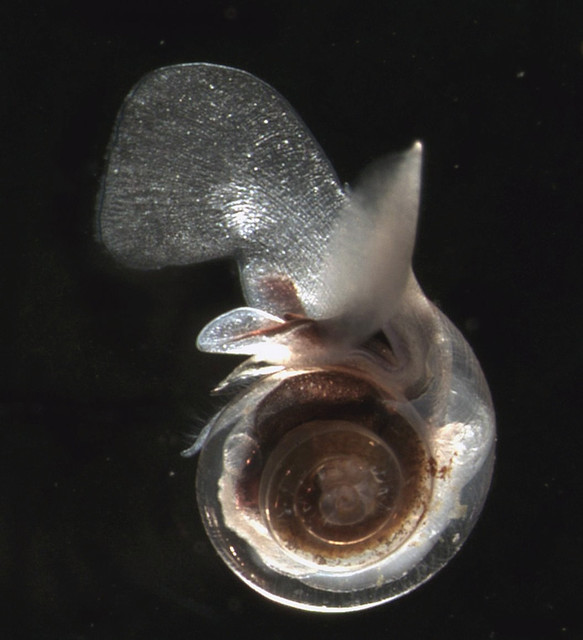 Rising amounts of carbon dioxide dissolving in the ocean is causing the acid corrosion of tiny sea creatures that form the base of the marine food chain, scientists have discovered. Ocean acidification caused by increased levels of carbon dioxide in the atmosphere is eating away at the shells of marine snails known as “sea butterflies”, the researchers said.
Rising amounts of carbon dioxide dissolving in the ocean is causing the acid corrosion of tiny sea creatures that form the base of the marine food chain, scientists have discovered. Ocean acidification caused by increased levels of carbon dioxide in the atmosphere is eating away at the shells of marine snails known as “sea butterflies”, the researchers said.
Labels:
News
Latest from World Ocean Radio: More Answers for Sandy
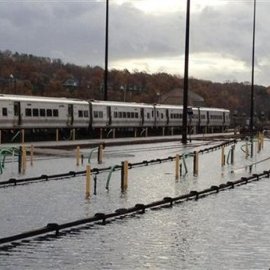 The after-effects of superstorm Sandy endure. What is done next in New York and New Jersey will be instructive for everyone everywhere living within coastal areas threatened by the sea.
The after-effects of superstorm Sandy endure. What is done next in New York and New Jersey will be instructive for everyone everywhere living within coastal areas threatened by the sea.
Labels:
News
Thursday, November 22, 2012
Ocean currents play a role in predicting extent of Arctic sea ice
 Each winter, wide swaths of the Arctic Ocean freeze to form sheets of sea ice that spread over millions of square miles. The Arctic ice cover reaches its peak each year in mid-March, before shrinking with warmer spring temperatures. But over the last three decades, this winter ice cap has shrunk: Its annual maximum reached record lows, according to satellite observations, in 2007 and again in 2011.
Each winter, wide swaths of the Arctic Ocean freeze to form sheets of sea ice that spread over millions of square miles. The Arctic ice cover reaches its peak each year in mid-March, before shrinking with warmer spring temperatures. But over the last three decades, this winter ice cap has shrunk: Its annual maximum reached record lows, according to satellite observations, in 2007 and again in 2011.
Labels:
News
European Parliament Votes at Last for Stronger Shark Finning Ban
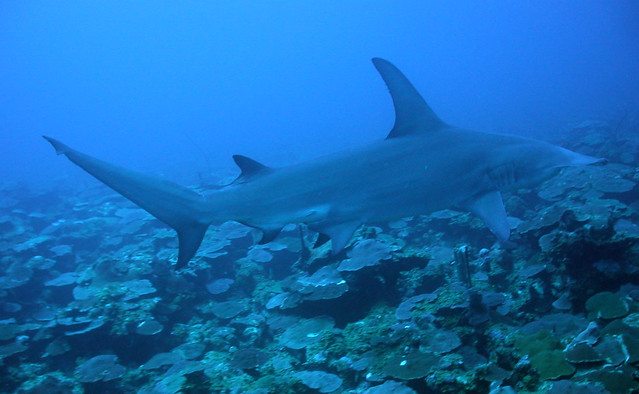 The Shark Alliance welcomes the European Parliament’s vote to close loopholes in the European Union ban on shark finning, the practice of slicing off a shark’s fins and discarding the body at sea. After years of debate, 566 Members of the European Parliament (MEPs) voted today in Strasbourg in favour of a report endorsing the European Commission’s proposal to require that fins be left naturally attached to all sharks that are brought to port.
The Shark Alliance welcomes the European Parliament’s vote to close loopholes in the European Union ban on shark finning, the practice of slicing off a shark’s fins and discarding the body at sea. After years of debate, 566 Members of the European Parliament (MEPs) voted today in Strasbourg in favour of a report endorsing the European Commission’s proposal to require that fins be left naturally attached to all sharks that are brought to port.
Labels:
News
Tuesday, November 20, 2012
Marine 'treasure trove' could bring revolution in medicine and industry
 Scientists have pinpointed a new treasure trove in our oceans: micro-organisms that contain millions of previously unknown genes and thousands of new families of proteins. These tiny marine wonders offer a chance to exploit a vast pool of material that could be used to create innovative medicines, industrial solvents, chemical treatments and other processes, scientists say.
Scientists have pinpointed a new treasure trove in our oceans: micro-organisms that contain millions of previously unknown genes and thousands of new families of proteins. These tiny marine wonders offer a chance to exploit a vast pool of material that could be used to create innovative medicines, industrial solvents, chemical treatments and other processes, scientists say.
Labels:
News
Monday, November 19, 2012
New Ocean Video Series
We are pleased to introduce Jon Slayer, a talented film maker, enthusiastic environmentalist and habitual adventurer. With extensive underwater filming experience, we will be showcasing some of his content over the next few months.
This first clip is a sample of wildlife captured on camera during a five day expedition to the world's largest Marine Protected Area. Sponsored by Global Ocean Legacy and the Pew Environment Group to gain footage for the Foreign and Commonwealth Office, this trip was the first occasion that a videographer had been permitted to film in the British Indian Ocean Territory.
This first clip is a sample of wildlife captured on camera during a five day expedition to the world's largest Marine Protected Area. Sponsored by Global Ocean Legacy and the Pew Environment Group to gain footage for the Foreign and Commonwealth Office, this trip was the first occasion that a videographer had been permitted to film in the British Indian Ocean Territory.
Labels:
Other Ocean related films,
Videos
ICCAT 2012: Good News for Tuna, Less so for Sharks
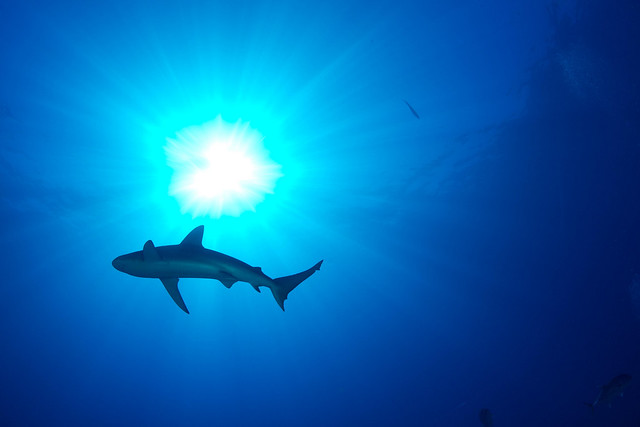
Agadir, Morocco - This year’s meeting of the International Commission for the Conservation of Atlantic Tunas (ICCAT) has been a tale of two giants of the open ocean: tunas and sharks, with contrasting outcomes for each.
FIELD Outlines Considerations for Sustainable Development Goals on Oceans
 A new report by the Foundation for International Environmental Law and Development (FIELD) highlights how oceans-related issues might be incorporated into the proposed Sustainable Development Goals (SDGs).
A new report by the Foundation for International Environmental Law and Development (FIELD) highlights how oceans-related issues might be incorporated into the proposed Sustainable Development Goals (SDGs).
Labels:
News
Sunday, November 18, 2012
Latest from World Ocean Radio: Some answers for Sandy
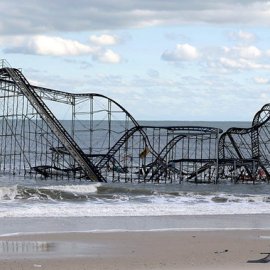 Superstorm Sandy posed many questions to those who deny the implications of sea level rise and other factors associated with changing climate. It has become evident that we can no longer protect ourselves from the cause and effect of climate change through indifference, contrived ignorance, and lack of action.
Superstorm Sandy posed many questions to those who deny the implications of sea level rise and other factors associated with changing climate. It has become evident that we can no longer protect ourselves from the cause and effect of climate change through indifference, contrived ignorance, and lack of action.
Labels:
News
Friday, November 16, 2012
Key Atlantic Fisheries Body Falls Short in Protecting the Deep Sea
 The North-East Atlantic Fisheries Commission (NEAFC) annual meeting concluded today in London. NEAFC, which regulates 5.6 million square kilometres of the high seas from the Arctic to northern Africa, had committed to use the year since its last meeting to review all the deep sea-related regulations the Commission had adopted over the past several years.
The North-East Atlantic Fisheries Commission (NEAFC) annual meeting concluded today in London. NEAFC, which regulates 5.6 million square kilometres of the high seas from the Arctic to northern Africa, had committed to use the year since its last meeting to review all the deep sea-related regulations the Commission had adopted over the past several years.
Labels:
News
A million species of animals and plants live in the ocean say scientists
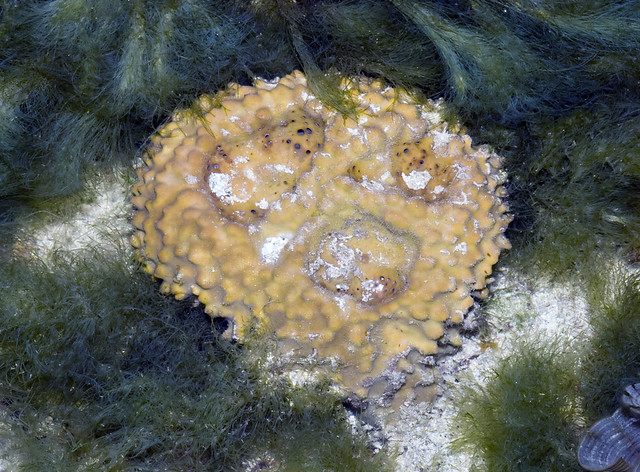 The first official register of what lives in the oceans has revealed that the marine environment may be home to as many as a million species of animals and plants, but only about a quarter of them have actually been formally described. Previous estimates of the number of species living in the oceans have ranged wildly from a few hundred thousand of several million, but the latest estimate is based on the first proper attempt to draw up an accurate inventory of marine life.
The first official register of what lives in the oceans has revealed that the marine environment may be home to as many as a million species of animals and plants, but only about a quarter of them have actually been formally described. Previous estimates of the number of species living in the oceans have ranged wildly from a few hundred thousand of several million, but the latest estimate is based on the first proper attempt to draw up an accurate inventory of marine life.
Labels:
News
Australia creates world's biggest marine park
 Australia has declared a protected zone across vast tracts of the country's oceans to create the world's biggest marine park and protect endangered fish species and coral reefs. About a million square miles of ocean will be proclaimed reserves today in a bid by the Gillard Government to limit fishing and oil and gas exploration.
Australia has declared a protected zone across vast tracts of the country's oceans to create the world's biggest marine park and protect endangered fish species and coral reefs. About a million square miles of ocean will be proclaimed reserves today in a bid by the Gillard Government to limit fishing and oil and gas exploration.
Labels:
News
Thursday, November 15, 2012
Obama vows to take personal charge of climate change in second term
 Barack Obama today claimed climate change as a personal mission of his second term, speaking in the first White House press conference since his re-election. He acknowledged his first term had made only limited progress on climate change, but he promised to remain personally engaged in getting Republicans and Democrats to agree on a course of action.
Barack Obama today claimed climate change as a personal mission of his second term, speaking in the first White House press conference since his re-election. He acknowledged his first term had made only limited progress on climate change, but he promised to remain personally engaged in getting Republicans and Democrats to agree on a course of action.
Labels:
News
Commission warns countries over insufficient action to fight illegal fishing
 The European Commission has stepped up its action to fight illegal fishing worldwide by warning eight countries that they risk being identified as countries it considers non-cooperative in the fight against illegal, unreported and unregulated (IUU) fishing. The countries in question are Belize, Cambodia, Fiji, Guinea, Panama, Sri Lanka, Togo and Vanuatu. Today's decision is the first of its kind and it highlights that these countries are not doing enough to fight illegal fishing.
The European Commission has stepped up its action to fight illegal fishing worldwide by warning eight countries that they risk being identified as countries it considers non-cooperative in the fight against illegal, unreported and unregulated (IUU) fishing. The countries in question are Belize, Cambodia, Fiji, Guinea, Panama, Sri Lanka, Togo and Vanuatu. Today's decision is the first of its kind and it highlights that these countries are not doing enough to fight illegal fishing.
Labels:
News
Monday, November 12, 2012
Latest from World Ocean Radio: Fantastic Voyages
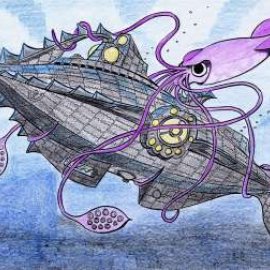 The sea has been a source of storytelling and real-time adventure tales since the beginning of narrative and almost every culture has its archetypal story. The great futuristic tale is 20,000 Leagues Under the Sea by Jules Verne, a tale of the submarine vessel Nautilus and her captain, Nemo, a scientist in pursuit of knowledge.
The sea has been a source of storytelling and real-time adventure tales since the beginning of narrative and almost every culture has its archetypal story. The great futuristic tale is 20,000 Leagues Under the Sea by Jules Verne, a tale of the submarine vessel Nautilus and her captain, Nemo, a scientist in pursuit of knowledge. In this episode of World Ocean Radio, host Peter Neill discusses modern day underwater devices for global ocean research, fascinating tools for underwater exploration in unexpected places.
Labels:
News
International Commission for the Conservation of Atlantic Tunas (ICCAT) commences in Morocco
 Beginning today, member governments are gathering for a week in Agadir, Morocco, to discuss conservation and management of tuna, particularly the valuable and severely depleted Atlantic bluefin tuna, and several species of threatened sharks, and will also be exploring questions of illegal fishing, possible solutions and combating fraud.
Beginning today, member governments are gathering for a week in Agadir, Morocco, to discuss conservation and management of tuna, particularly the valuable and severely depleted Atlantic bluefin tuna, and several species of threatened sharks, and will also be exploring questions of illegal fishing, possible solutions and combating fraud.
Labels:
News
Tuesday, November 6, 2012
In collaboration with...World Ocean Radio
Labels:
News
Subscribe to:
Comments (Atom)
